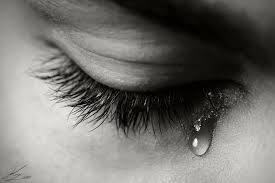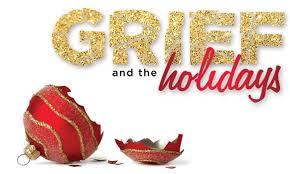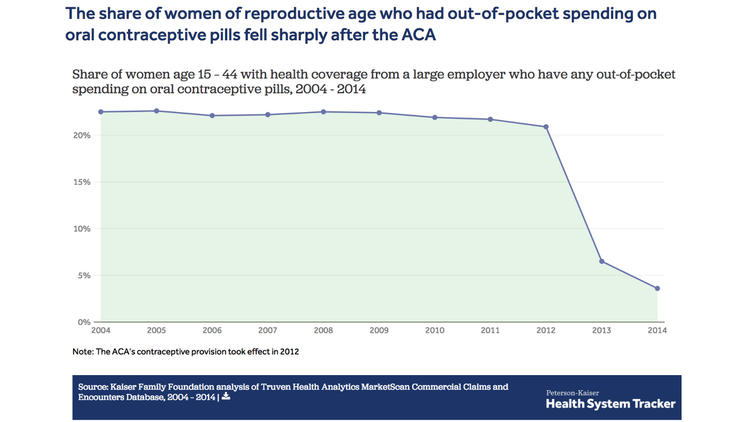Tips for the Grieving and Those Who Love Them
Whether it’s Thanksgiving, Hanukkah, Christmas, or Kwanzaa, the end of the calendar year marks a whirlwind time of holiday dinners, parties and events. Suddenly, our lives revolve around rich food, holiday decorations, shopping and gifts. The pressures of frantic shopping, non-stop cooking and having to wear happy faces and obnoxious holiday sweaters can be overwhelming when life is good. It can be especially difficult when you’re grieving.
Let me re-phrase that. It can be brutal when you’re grieving.
If you’ve recently lost a loved one and are facing your first (or second, or third) holiday season without them, the recent onset of holiday music and the proliferation of Christmas decorations can be devastating. And that’s okay. It’s normal. Trust me. I know how hard it is to make it through all the expressions of joy and good cheer when your heart is broken into a million little pieces.
You’re not alone.
And, I also know how hard it is to love someone who’s grieving during the holidays, too. You may feel guilty about being happy when your loved one is so sad. You never know if you should leave them alone to grieve, or if you should encourage them to get out and have some fun. Should you call and check on them? Or will that make them sad if you happen to call when they’re feeling relatively happy? It’s hard to know the right thing to do, isn’t it?
You’re not alone, either.
Whether you’re grieving this holiday season or know someone who is, I got you! With some help, I’ve put together some tips for both the grieving soul and the folks who love a grieving soul to help you all navigate this holiday season.

TIPS FOR THE GRIEVING:
- ACKNOWLEDGE that this holiday season will be different and harder than in the past. Own your truth, don’t try to deny it. And most importantly, ALLOW yourself to feel what you feel: joy, anger, sadness, glee … whatever, just FEEL it!
- BE HONEST and tell people how you feel about participating (or not) in certain events this year. Be clear with your friends and family about both what you want to do and what you don’t want to do. Give them plenty of notice if you’re not going to follow your usual holiday routine and understand that even if they’re not happy about it, they’ll get over it.
- Set REALISTIC expectations about what you will do, cook, decorate, etc. Don’t over-commit yourself when you’re feeling particularly good or high energy. Remember that grief is often a wave of emotions. You may feel up to it today, but not tomorrow.
- Keep the TRADITIONS you want to keep, and let go of the rest. And don’t feel guilty about it! You don’t have to carry on certain traditions because your late loved ones liked them. It’s your choice, so only do what you’re comfortable doing.
- Avoid ISOLATING YOURSELF! You may be tempted to avoid all the hoopla and stay in bed from Veterans Day until after New Years, but don’t. Completely isolating yourself won’t help your grief, won’t bring your loved one back, nor is it healthy.
- If you’re feeling overwhelmed, SKIP sending HOLIDAY CARDS, DECORATING, or even certain EVENTS if you want, and don’t feel guilty about it!
- Select a few SPECIAL ITEMS that belonged to your late loved one and gift them to friends or family who will appreciate them.
- Make a DONATION to a charity in your late loved one’s name.
- Make a MEMORIAL ornament, wreath, or other decoration in honor of your loved one.
- JOURNAL when you’re having a particularly bad day.
- GET HELP. Seek professional help, if necessary. Don’t try to “white knuckle” it on your own. There are licensed professionals available to help you. Say yes to help!
- Practice SELF CARE. Put yourself first. Drink plenty of water and get lots of sleep. Pay attention to your eating habits … even with all the rich food, make sure you’re getting enough fruits and veggies. Hydrate, exfoliate, meditate, and relax whenever you can!
- Have an ESCAPE PLAN. If you do attend the office parties, the family dinners, etc., drive yourself so that you can leave whenever you want. Or take an Uber. Or call a cab. Just be able to leave when it all becomes too much!
- Create NEW TRADITIONS. Now is a great time to establish new traditions, designed the way you want. Do it, and don’t feel guilty!
- Remember that it’s OKAY TO BE HAPPY! Enjoying yourself doesn’t mean you love or miss your loved one any less. In fact, what better way to honor their memory than to have fun? So go ahead and allow yourself to experience joy this season. It’s what they’d want you to do!
(Sources: What’s Your Grief dot com; Vitas Healthcare; Huff Post)

TIPS FOR HELPING SOMEONE WHO’S GRIEVING:
- Remember that EVERYONE GRIEVES DIFFERENTLY. Respect the way your friend grieves. There is no right way or wrong way to grieve. Even if you think your friend should’ve “gotten over it by now”, don’t say so. In fact, if that’s what you think, you’re probably not that great a friend anyway, so …
- Be a GOOD LISTENTER! It used to drive me crazy when people tried to comfort me by talking non-stop about their own losses or issues. THAT DOES NOT HELP!! Let the grieving person do most of the talking. If they don’t want to talk, allow them to be quiet. Either way, LISTEN more and talk less.
- Remember that the way YOU want to celebrate may not MATCH THE WAY your grieving loved one wants to celebrate. Don’t be offended they just aren’t up for the usual holiday hijinks. Still invite them because they don’t want to be left out, but without the pressure. Always allow them an “out”.
- No news isn’t necessarily good news. If you haven’t heard from your grieving loved one for several days CALL THEM! Don’t send a text. Don’t inbox them or send a private message via social media. Pick up the phone and CALL THEM. Your call may be the only thing that gets them out of bed that day.
- It’s OKAY IF YOU DON’T KNOW WHAT TO SAY! No one expects you to have all the answers, so if you don’t know what to say, that’s cool. It’s better to just say “I love you and I’m here” than to fill the dead air with platitudes and clichés. I know it’s awkward and it’s hard. But trust me. “I love you and I’m here” can be enough.
- Encourage them to TALK ABOUT THEIR LOVED ONE! One of the hardest things for someone in mourning is the feeling that everyone is tired of hearing them talk about their dearly departed. Talking about our lost loved ones helps us mourn them. So please, allow them to talk as much as they want!
- AVOID GIVING ADVICE! Just … stop. Don’t. For real. Now is NOT the time.
- Don’t use the holiday season as an opportunity to EXPLAIN THE LOSS. Again, now is not the time. Words like “it’s God’s will” and “This is for the best” may sound good in your head, but they don’t at the holiday table.
- HELP with PRACTICAL tasks. Especially if your mourning loved one usually does the cooking or hosts the party. Offer to either take over or help them, because this year will be very different.
- BE AVAILABLE. Don’t expect reciprocity when it comes to communicating. You may have to be the one who always initiates contact for now. Keep reaching out, even if you have to leave messages. Don’t make the person feel guilty for not responding, but let them know that you’re there, you love them, and you want to help. These are the messages they need to hear most.
(Source: CancerCare.com)
Can you think of any more tips for the holiday season? Please leave them in the comments below. In the meantime, have a safe and happy holiday season!



















